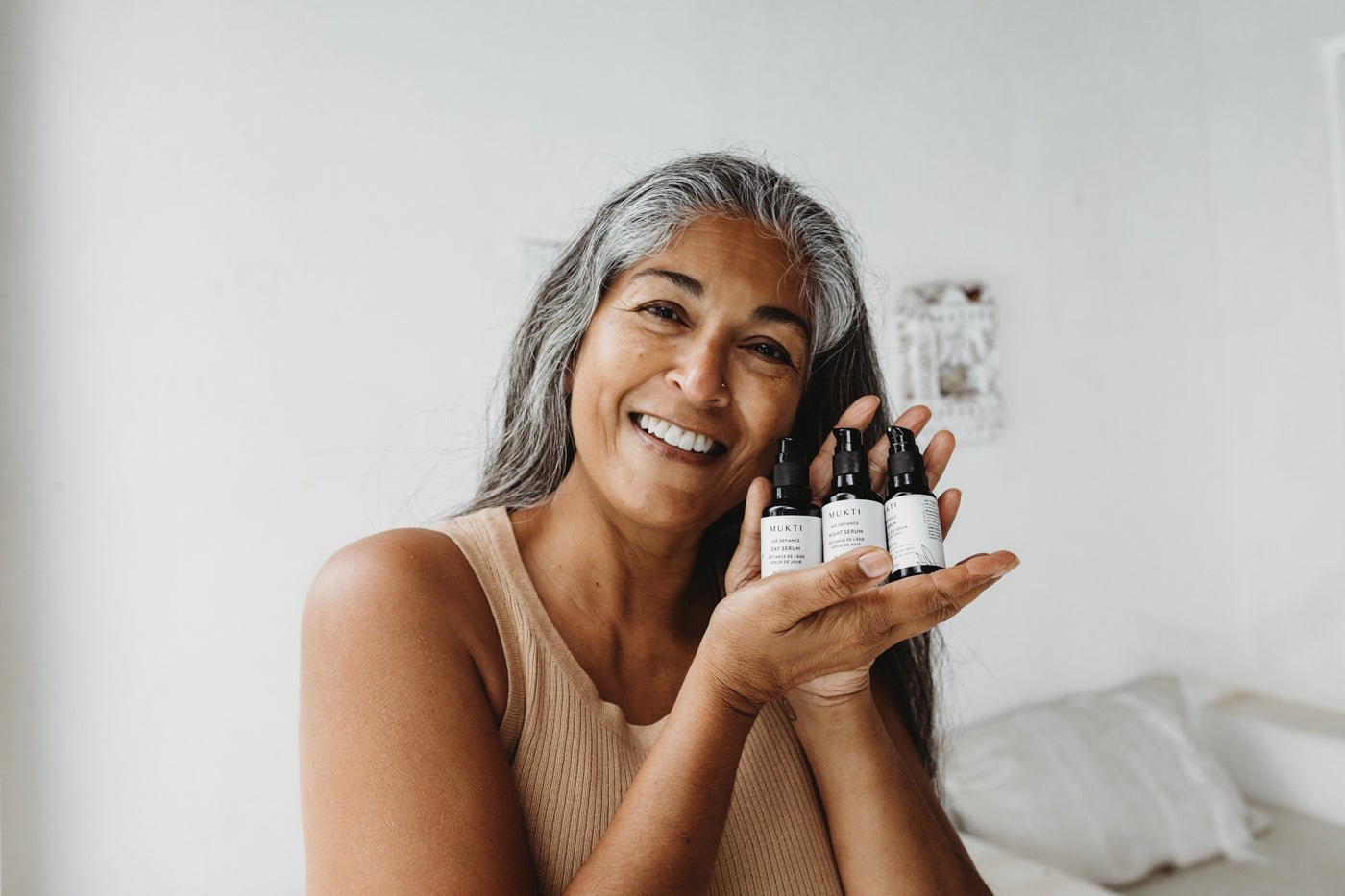
How to Gracefully Navigate Peri-menopause to Menopause
By Ema Taylor
Menopause marks the end of a womans reproductive life cycle and is diagnosed retrospectively following 12 months or more without a period. The normal age of menopause is between 45-55 and most commonly occurs between 51-55 years of age.
Peri-menopause refers to the time in which your body is making the natural transition toward menopause and can occur up to 10 years before menopause begins.
Sadly, there is a lot of stigma and in some cases, grief associated with menopause. Whether this is due to the dread of getting ‘old’, losing one's sense of self, being labeled emotional or experiencing adverse symptoms such as flushes, thinning skin or weight changes, whatever the stigma may be, I know for a fact that this narrative has to change.
While there are undoubtedly big shifts occurring in a peri and menopausal woman's body, these changes do not have to be experienced as a rollercoaster ride. By understanding what is happening in your body and supporting yourself holistically in the peri-menopausal years you can greatly improve your transition to menopause. Perhaps then this phase of life can be met with a sense of freedom and seen as an exciting new chapter of your life.
Most common side effects associated with peri-menopause & menopause
The most common drivers of peri-menopausal symptoms are due to low or no progesterone, relatively higher oestrogen transitioning to low oestrogen, possible insulin resistance, thyroid imbalances, nutrient deficiencies and a heightened nervous system state.
The most common symptoms include:
- Mood and sleep disturbances
- Hot flushes and night sweats
- Migraines
- Heavy periods, flooding and period pain
- Tender and enlarged breasts
- Vaginal dryness
- Decrease in libido
- Abdominal weight gain
- Thinning skin
- Hair loss on your head and hair growth on your face
How to manage these symptoms naturally
Fortunately, there are a number of natural and holistic ways in which you can reduce these symptoms from occurring or manage them very well.
1. Soothe your nervous system & support your adrenals
Losing progesterone and oestrogen can cause a big shock to your brain and nervous system and in order to adapt to these changes your nervous system requires a lot of support.
A calm, balanced and nourished nervous system can improve sleep, moods, libdio, hot flushes, migraines and balance weight. The goal is to live your day from a more parasympathetic dominant state (rest & digest) over a sympathetic dominant state (fight & flight) To do this:
- Aim to have no more than 1 coffee per day and ensure it is enjoyed after a grounding breakfast
- Create space every day to do something that actually brings you joy - perhaps this is a walk outside, reading a book, taking time to be with friends
- Prioritize at least 1 nervous system supportive practice each day such as mediation, deep breathing, a sauna, mindfulness, gratitude journaling
- Get to bed before 10pm and aim to have 8 hours of rest per night
2. Reassess your diet
Insulin resistance can cause weight changes, moodiness and fatigue. A big goal is to stabilise blood glucose and insulin levels during this phase of life and the best way to do this is through the food you eat.
- Ensure there is a protein in every meal and enjoy your first portion before 10am
- Avoid sugary, processed foods and instead enjoy real, whole foods
- Minimise snacking and fill up at each meal with protein, healthy fats, complex carbohydrates and vegetables
- Minimise alcohol consumption
- Eat within an 8 hour window during the day & have a gentle fast overnight
3. Support your skin from the inside & out
Alterations in hormones coupled with collagen and fat loss can lead to dry, thin and sagging skin. The key here is to support your skin both internally through the foods you eat and externally with high quality, organic skin products.
- Ensure you are enjoying abundant organic grown, colourful fruits and vegetables which are rich in antioxidants
- Enjoy healthy fats in each meal such as nuts, cold pressed oils, seeds, oily fish and avocado
- Increase collagen promoting foods including bone broth, sardines, organ meats, berries or add a collagen powder to your routine
- Choose active organic skin care products that target anti aging and promote collagen synthesis such as Mukti’s Age Defiance Collection. I recommend the Ultimate Age Defiance Trio inclusive of eye serum, day serum and night serum as well as their newly-launched Queen of the Night Crème.
- Adding in additional vitamins such as Vitamin A and C can enhance antioxidant activity and help to reduce fine lines and wrinkles
4. Utilise herbal and supplemental medicine
There are so many incredible herbs and supplements that can support you on your journey from peri-menopause to menopause. I recommend working with a qualified naturopath who can prescribe specific supplements individualised for you. If you’re seeking deeper support please feel free to reach out.
____________________





Leave a comment
This site is protected by hCaptcha and the hCaptcha Privacy Policy and Terms of Service apply.